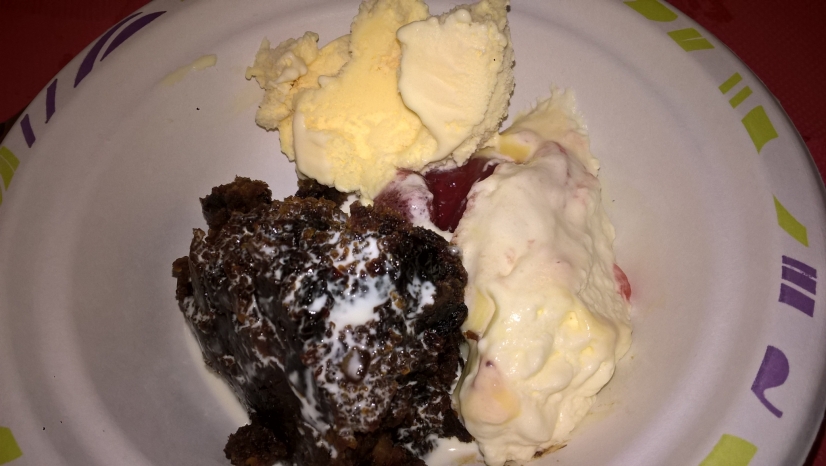The way Christmas has fallen this year has meant I haven't been away, and a number of pastoral and practical matters mean that it's only now that I am pausing - and having a lieu day for Boxing Day (I think) before sharing in leading worship on Sunday - one small triumph for ecumenism!
It would very dishonest to say that 2018 has been the best year ever, it certainly has not. Nonetheless, as it reaches its close, I am healthy, content and have just booked a lovely weekend break in February, when I will head to Florence with one of my oldest friends.
The year has had many church-related highlights - the baptism of five friends in May, the emergence of new leaders for our Sunday School, a wedding, welcoming people into my home for meals, generous financial giving to important causes, and the pure delight of seeing younger people flourishing and finding their voices.
It has also also had some personal delights - a long weekend in Rome and a fortnight in Czechia being especially enjoyable.
There have been challenges and disappointments, and a lot of sadness - when five people who have been important in your story die within three months, that's quite a lot to process.
There have been times of self-doubt and questioning, and there have been times when I have (finally) felt, 'actually I am OK at this ministry lark.' However it has felt, my sense of call has not wavered one bit, and I remain convinced God calls me to this role, in this place, at this time.
Sasha the cat has had a tough year, too, with endless tests, surgery and drugs that have horrible side effects - we are hopeful that the new year will see her weaned off the drugs and able to enjoy being a happy cat again, along with her mum, Sophie, who is thriving, and winning over even the most unsure of guests!
As the year draws to its close, I feel positive and hopeful. I have learned a lot about myself - and about others - this past year, which I hope will enable me to 'grow', even flourish in 2019. There continue to be green shoots at church, and God's grace which had brought us safe this far, will continue to lead us on.
I know that among my readers are many others for whom2018 has been demanding or difficult - as it draws to its close, and as we turn the page to begin writing the story of 2019, my prayer is that hope will sustain you, joy uplift you, peace fill you and love will surround you whatever the year may bring.
